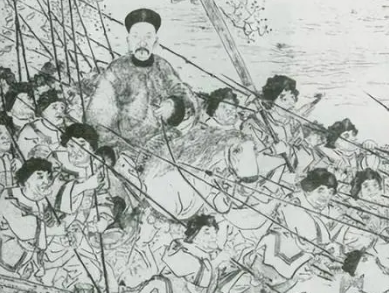When exploring the vast historical territory of China, we often focus on those once-powerful capitals and significant historical events. However, in Liaoning Province in the northeast of China, there is a city that silently witnessed the rise of a powerful dynasty - the Qing Dynasty. Today, we will delve into the long river of history and explore the inexplicable bond between Fushun city and the Qing Dynasty.

Fushun, located in the eastern part of Liaoning Province, is a city with a long history. In the late Ming Dynasty, it was the central region of a local political power named "Jianzhou". It was on this land that a small tribe of Jianzhou Left Guard gradually grew stronger, and its leader was Nurhachi, who later established the Qing Empire. It can be said that Fushun is one of the birthplaces of the Qing Dynasty and has made an indelible contribution to the establishment and development of the Qing Dynasty.
In 1608, Nurhachi established the Houjin regime in Hetu'ala (now Xinbin Manchu Autonomous County) near Fushun, marking the formal establishment of the predecessor of the Qing Dynasty. The rise of the Houjin regime posed a serious threat to the Ming Dynasty. In the decades that followed, the Houjin regime continued to expand its influence, ultimately replacing the Ming Dynasty and establishing the Qing Dynasty. This history clearly demonstrates that Fushun and its surrounding areas played a crucial role in the early history of the Qing Dynasty.
In addition to its political significance, Fushun was also one of the economic and cultural centers of the early Qing Dynasty. The agriculture, handicrafts, and commerce here were relatively developed, providing a material foundation for the growth of the Houjin. At the same time, the cultural diversity of the Fushun region laid the foundation for the multiculturalism of the Qing Dynasty. Here, Manchu culture and Han culture blended, forming unique local characteristics.
However, the historical status of Fushun was not always smooth sailing. As the Qing Dynasty consolidated its power and migrated towards the Central Plains, the political importance of Fushun gradually diminished. However, in folk legends and local culture, the origin of Fushun and the Qing Dynasty remains a proud memory. Today, there are many historical relics and museums in Fushun city, telling the story between this city and the Qing Dynasty.
In summary, Fushun is not only one of the birthplaces of the Qing Dynasty but also an important base for its early development. Although its political status has declined over time, the imprint left by Fushun in Qing Dynasty history is eternal. From Jianzhou Left Guard to the rise of the Houjin and then to the establishment of the Qing Dynasty, Fushun witnessed the birth of a great era. Therefore, we can proudly say that the Qing Dynasty indeed began from this fertile land of Fushun.
Disclaimer: The above content is sourced from the internet and the copyright belongs to the original author. If there is any infringement of your original copyright, please inform us and we will delete the relevant content as soon as possible.
































